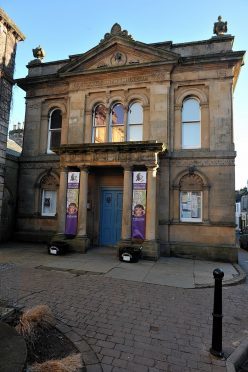A Moray museum will host an unusual ceremony next week when an ancient Maori skull is collected by ambassadors from its homeland for repatriation.
Two representatives from the Museum of New Zealand will visit Forres to receive the preserved head.
The artefact was donated to the Moray town’s Falconer Museum in the late 1800s, but is believed to have been kept on display for only a short period of time.
For more than 100 years, it has been held in storage at the building.
However, in 2003 the New Zealand government charged the country’s national museum with repatriating as many ancestral Maori remains as possible from around the world.
And on Tuesday, it will be unearthed and officially handed over to representatives from the antipodean nation.
Forres councillor Anne Skene praised the “responsible decision” the local authority had taken in agreeing to return the skull.
She said: “When the Maori head was brought to Moray it was a different era, and I think as we have become more aware of other cultures it is only right that we return it.
“It’s a very responsible decision, and these days public opinion is very much that these things should be repatriated to their own countries.
“That is extremely important to those indigenous people, and I’ll be really pleased when they reclaim it.”
Historians believe the skull was taken from Waikouaiti, a town in the Otago region of New Zealand’s South Island.
Maori leaders have spent decades petitioning for the artefacts to be returned to their homeland.
The remains of thousands of indigenous people were taken from New Zealand by western anthropologists in the 18th and 19th centuries.
They were exhibited at venues including the National Museum of Scotland in Edinburgh and Kelvingrove Museum and the Hunterian Museum in Glasgow.
Two years ago, the remains of 107 Maori and Moriori people were repatriated from the American Museum of Natural History.
The artefacts included 35 preserved heads, tattooed skin and 70 skeletons.
Upon being returned to their homeland, they were given a respectful burial.
The New Zealand natives will stage a public talk in the Falconer Museum on Monday at 3.30pm, where they will explain how important it is to Maori people that their ancestral remains are returned to the country.
